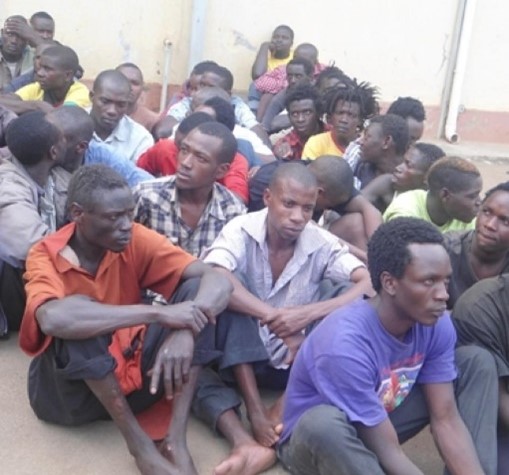The Liberian government’s recent temporary detoxification and rehabilitation program for drug-addicted youth in Montserrado County has been widely criticized as a superficial and ineffective gesture, more akin to a public relations stunt than a genuine attempt to address the nation’s escalating drug crisis. The program’s voluntary nature, allowing participants to leave at will, has been identified as a critical flaw, highlighting a lack of understanding of addiction and the need for structured, compulsory interventions. The alarming statistic of 485 out of 600 enrolled youths abandoning the program underscores the government’s failure to implement effective retention strategies and provide sustainable alternatives to drug dependency. This voluntary approach, coupled with the absence of follow-up measures to ensure continued treatment and support for participants, renders the program largely symbolic, offering little hope for meaningful change.
The government’s seeming indifference to the severity of the drug crisis, despite reports of drug-related deaths in Montserrado County, raises serious concerns about its commitment to tackling this pressing issue. The voluntary framework of the program demonstrates a fundamental misunderstanding of the nature of addiction, treating it as a matter of choice rather than a complex health issue requiring sustained intervention and support. While government officials defend the voluntary nature of the program, citing an inability to force participation, experts argue that addiction often necessitates a degree of compulsion to break the cycle of dependency. The lack of robust measures to encourage retention and provide ongoing support renders the program ineffective, leaving vulnerable youth at continued risk.
The Liberia Drug Enforcement Agency (LDEA), tasked with combating drug trafficking and abuse, has been plagued by instability and a lack of effective leadership, further exacerbating the drug crisis. Frequent changes in leadership, coupled with allegations of compromise within the agency, have hampered its ability to effectively enforce drug laws and curb the influx of illicit substances. This institutional weakness undermines the impact of any rehabilitation efforts, as the underlying drivers of addiction remain unaddressed. The combination of a weakened enforcement agency and a poorly designed rehabilitation program signals a lack of political will to truly confront the drug epidemic.
The voluntary nature of the detoxification program is particularly perplexing given the severity of Liberia’s drug problem. Allowing addicted individuals to freely leave the program without addressing the underlying causes of their addiction or providing adequate support systems virtually guarantees relapse. This approach contrasts sharply with established best practices in addiction treatment, which emphasize structured interventions and long-term support to facilitate recovery. The government’s seeming acceptance of high attrition rates suggests a resignation to the status quo and a lack of commitment to achieving meaningful outcomes.
The government’s justifications for the program’s voluntary structure are unconvincing. Deputy Minister Nyonton’s assertion that rehabilitation is voluntary and individuals cannot be forced to stay reveals a fundamental misunderstanding of the nature of addiction. While respecting individual autonomy is crucial, addiction often impairs decision-making capacity, necessitating intervention to break the cycle of dependency. The argument that the program is a “temporary camp” further diminishes its credibility and highlights the lack of a long-term vision for addressing the drug crisis. A temporary fix cannot address a deeply entrenched societal issue.
Effective drug rehabilitation programs require a multi-faceted approach that addresses the underlying causes of addiction, provides structured treatment and support, and offers alternatives to drug use. This includes providing:
- Compulsory treatment options: While respecting individual rights, mandatory treatment can be a necessary intervention for individuals whose addiction severely impairs their judgment and poses a risk to themselves or others. This ensures they receive the necessary care and support to break free from addiction.
- Long-term support and aftercare: Recovery from addiction is an ongoing process, and individuals require sustained support to maintain sobriety. This includes access to counseling, support groups, and other resources that help them navigate the challenges of recovery.
- Vocational training and employment opportunities: Providing individuals with the skills and opportunities to earn a living reduces the likelihood of relapse by giving them a sense of purpose and self-sufficiency. This helps them reintegrate into society and build a drug-free life.
- Community-based programs: Engaging families and communities in the recovery process is crucial for long-term success. This involves providing education and support to families, as well as creating community-based programs that offer a safe and supportive environment for individuals in recovery.
- Strengthening law enforcement: Addressing the supply side of the drug problem is essential for reducing the availability of illicit substances and disrupting drug trafficking networks. This requires strengthening law enforcement agencies and providing them with the resources they need to effectively combat drug trafficking.
Without addressing these crucial elements, the Liberian government’s efforts will likely remain superficial and ineffective, failing to make a significant impact on the nation’s drug crisis. The current approach appears to be a band-aid solution to a deep wound, leaving the underlying issues festering and the affected youth vulnerable. A comprehensive, well-funded, and evidence-based approach is urgently needed to address the root causes of addiction, provide effective treatment and support, and offer hope for a brighter future for Liberia’s youth.


